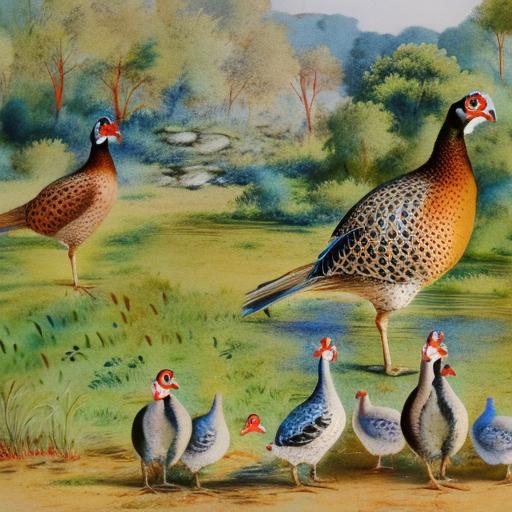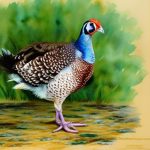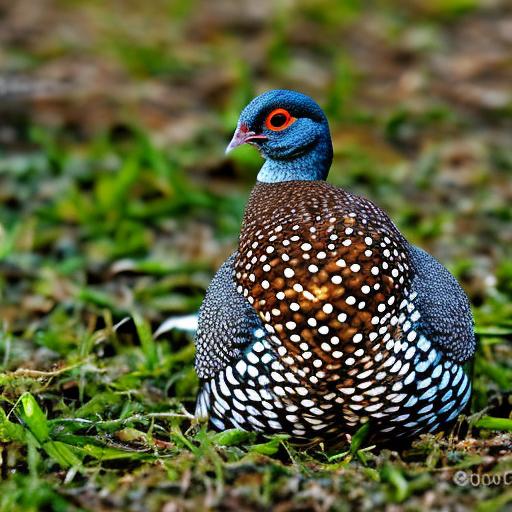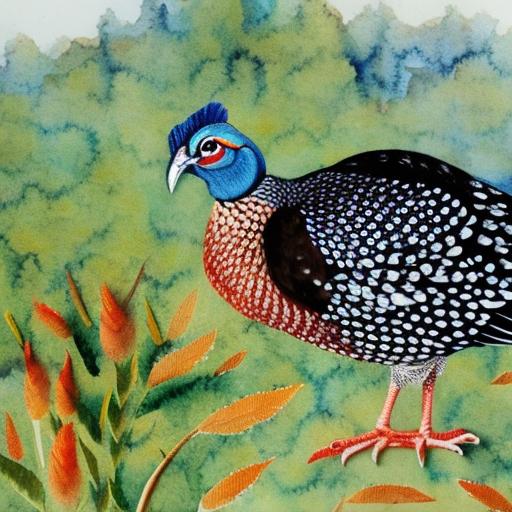Breeding guinea fowl can be a rewarding experience for poultry enthusiasts. However, one of the key factors that can significantly impact the success of breeding is the age at which the guinea fowl are bred. The breeding age of guinea fowl plays a crucial role in their reproductive cycle and overall health. In this article, we will explore the importance of understanding the reproductive cycle of guinea fowl, the factors that affect their breeding age, and how to select the right age for breeding. Additionally, we will provide tips for breeding guinea fowl at the right age and address common challenges that may arise when breeding guinea fowl at a young or old age.
Key Takeaways
- Guinea fowl reach breeding age at around 6-8 months old
- The reproductive cycle of guinea fowl is influenced by factors such as daylight length and temperature
- Factors affecting the breeding age of guinea fowl include genetics, nutrition, and environmental conditions
- Select the right age for breeding guinea fowl based on their physical maturity and overall health
- Tips for breeding guinea fowl at the right age include providing a balanced diet and proper housing
- Breeding guinea fowl at a young or old age can lead to challenges such as low fertility and increased health risks
- It is recommended to breed guinea fowl at the appropriate age of 6-8 months for optimal reproductive success
Understanding the Reproductive Cycle of Guinea Fowl
Guinea fowl, like many other poultry species, go through a distinct reproductive cycle. Typically, guinea fowl reach sexual maturity at around 6 to 8 months of age, although this can vary depending on the individual bird and its environment. Once they reach sexual maturity, female guinea fowl will begin laying eggs, with peak egg production occurring between the ages of 1 to 3 years. Male guinea fowl will also reach sexual maturity around the same time as females and will begin to display mating behaviors such as strutting and calling. It’s important to note that guinea fowl are seasonal layers, meaning they will typically lay eggs during the warmer months and cease laying during the colder months. Understanding the reproductive cycle of guinea fowl is essential for determining the appropriate age for breeding and maximizing the chances of successful reproduction.
Factors Affecting the Breeding Age of Guinea Fowl
Several factors can influence the breeding age of guinea fowl. Genetics play a significant role in determining when guinea fowl reach sexual maturity and how productive they will be as breeders. Different breeds of guinea fowl may reach sexual maturity at different ages, so it’s important to consider the specific breed when determining the optimal breeding age. Additionally, environmental factors such as diet, housing conditions, and overall health can impact the timing of sexual maturity in guinea fowl. A well-balanced diet that meets the nutritional needs of growing guinea fowl is essential for promoting healthy development and reaching sexual maturity at the appropriate age. Stress and overcrowding can also delay sexual maturity in guinea fowl, so providing a low-stress environment with ample space for exercise and natural behaviors is crucial for ensuring they reach breeding age in a timely manner.
Selecting the Right Age for Breeding Guinea Fowl
Selecting the right age for breeding guinea fowl is essential for ensuring successful reproduction and healthy offspring. As mentioned earlier, guinea fowl typically reach sexual maturity at around 6 to 8 months of age, but this can vary depending on individual birds and environmental factors. It’s generally recommended to wait until guinea fowl are at least 8 months old before attempting to breed them. Breeding guinea fowl too early can result in smaller clutch sizes, lower egg fertility, and increased risk of health complications for both the parent birds and their offspring. On the other hand, waiting too long to breed guinea fowl can also lead to decreased fertility and reproductive success, as older birds may experience declines in egg quality and overall vitality. Therefore, it’s important to carefully monitor the development of guinea fowl and select the right age for breeding based on their individual readiness and overall health.
Tips for Breeding Guinea Fowl at the Right Age
When it comes to breeding guinea fowl at the right age, there are several tips that can help ensure a successful outcome. First and foremost, it’s essential to provide a well-balanced diet that meets the nutritional needs of growing guinea fowl. A diet rich in protein, vitamins, and minerals is crucial for promoting healthy development and reaching sexual maturity at the appropriate age. Additionally, providing a low-stress environment with ample space for exercise and natural behaviors can help promote timely sexual maturity in guinea fowl. Monitoring the behavior and physical development of guinea fowl can also provide valuable insights into their readiness for breeding. Signs of sexual maturity in female guinea fowl include increased vocalization, squatting when approached by males, and developing a more prominent wattle and comb. Male guinea fowl will display mating behaviors such as strutting, calling, and attempting to mount females. By observing these signs and providing optimal care, breeders can increase the likelihood of successful breeding at the right age.
Common Challenges in Breeding Guinea Fowl at a Young or Old Age
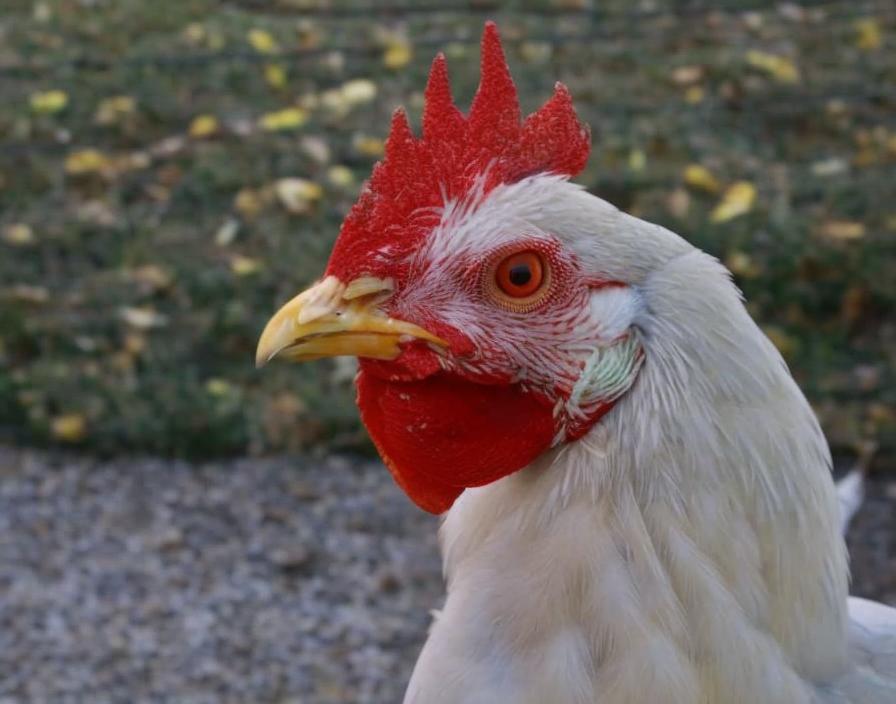
Breeding guinea fowl at a young or old age can present various challenges that can impact reproductive success and overall bird health. Breeding guinea fowl too early can result in smaller clutch sizes, lower egg fertility, and increased risk of health complications for both parent birds and their offspring. Young guinea fowl may not have fully developed reproductive systems, which can lead to difficulties in producing viable eggs and successfully hatching chicks. On the other hand, breeding guinea fowl at an advanced age can also pose challenges. Older birds may experience declines in egg quality and overall vitality, leading to decreased fertility and reproductive success. Additionally, older guinea fowl may be more prone to health issues such as egg binding and reproductive disorders, which can impact their ability to successfully breed and raise healthy offspring. It’s important for breeders to carefully consider these challenges when determining the optimal age for breeding guinea fowl.
In conclusion, understanding the importance of breeding age in guinea fowl is essential for promoting successful reproduction and maintaining overall bird health. By understanding the reproductive cycle of guinea fowl, considering factors that affect breeding age, and selecting the right age for breeding, poultry enthusiasts can increase the likelihood of successful reproduction and healthy offspring. Providing optimal care, monitoring development, and addressing common challenges associated with breeding at a young or old age are crucial steps in ensuring the well-being of guinea fowl and maximizing their potential as breeders. By following these recommendations, breeders can contribute to the preservation and propagation of this unique and fascinating poultry species.
If you’re considering breeding guinea fowl, it’s important to understand the ideal breeding age for these unique birds. According to a recent article on PoultryWizard, understanding the breeding age of guinea fowl is crucial for successful breeding and raising healthy offspring. To learn more about creating the perfect environment for your poultry, check out their article on how big a coop needs to be for chickens.
FAQs
What is the breeding age for guinea fowl?
Guinea fowl typically reach breeding age at around 6-8 months old. However, some may not start breeding until they are a year old.
How can you tell if a guinea fowl is ready to breed?
You can tell if a guinea fowl is ready to breed by observing their behavior. They will display mating behavior such as strutting, calling, and displaying their feathers.
What is the best age to start breeding guinea fowl?
The best age to start breeding guinea fowl is around 8-10 months old. This allows them to reach sexual maturity and be in good physical condition for breeding.
Are there any health considerations for breeding guinea fowl at a young age?
Breeding guinea fowl at a young age can put stress on their bodies and may affect their long-term health. It is important to ensure that they are in good physical condition before allowing them to breed.
How long can guinea fowl continue to breed?
Guinea fowl can continue to breed for several years, with some being able to breed up to 10 years of age. However, their fertility may decline as they get older.
Meet Walter, the feathered-friend fanatic of Florida! Nestled in the sunshine state, Walter struts through life with his feathered companions, clucking his way to happiness. With a coop that’s fancier than a five-star hotel, he’s the Don Juan of the chicken world. When he’s not teaching his hens to do the cha-cha, you’ll find him in a heated debate with his prized rooster, Sir Clucks-a-Lot. Walter’s poultry passion is no yolk; he’s the sunny-side-up guy you never knew you needed in your flock of friends!

